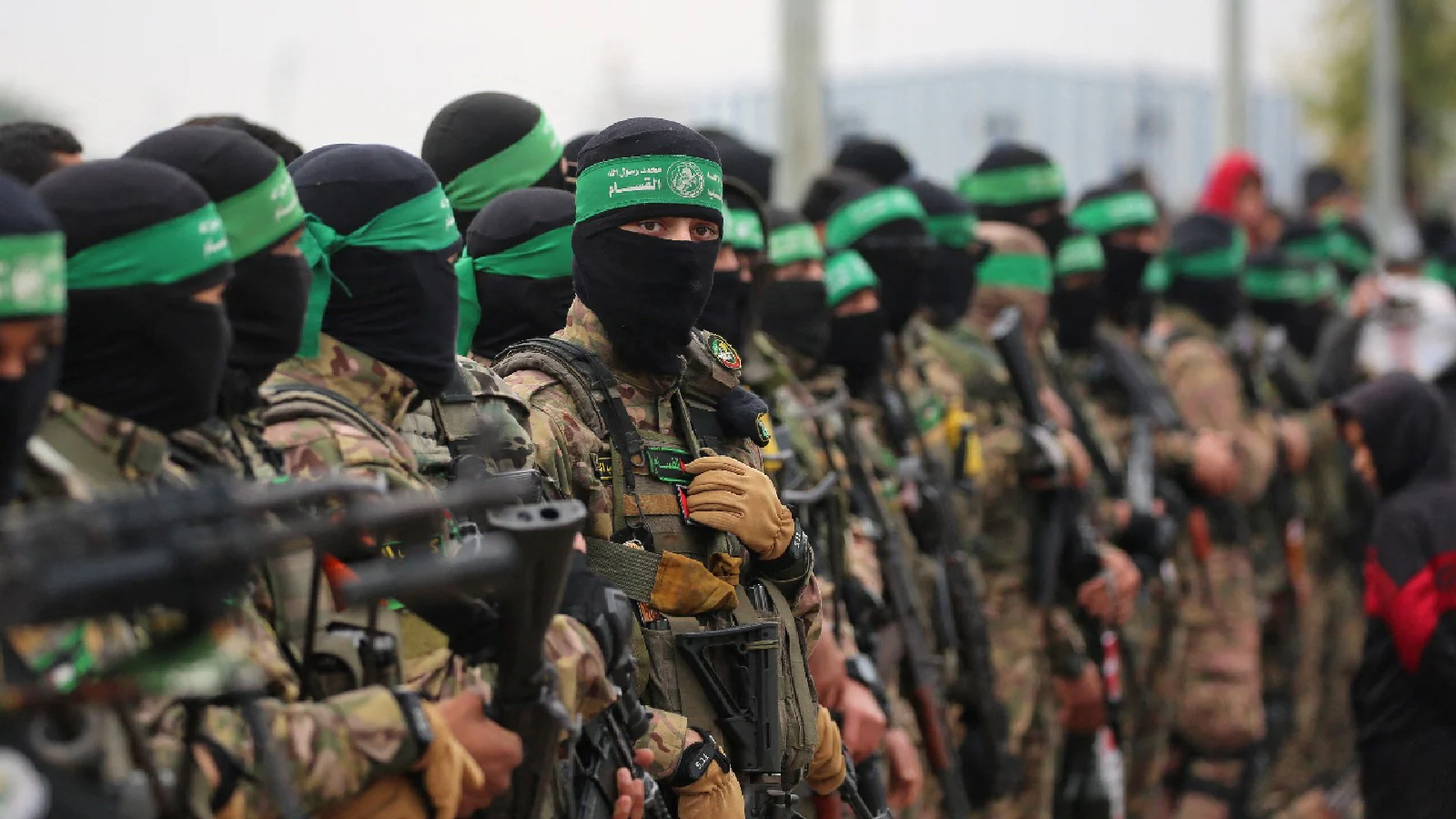Copyright news18

For decades, the Palestinian struggle for statehood has been one of the most compelling human rights causes of the modern era—a people seeking freedom, dignity, and sovereignty in their homeland. But in recent years, and especially after the October 7, 2023, event, the global perception of this cause has been deeply tarnished. The main reason for this erosion of sympathy lies in the actions and ideology of Hamas, a group whose pursuit of power has not only devastated Gaza but has also undermined the moral and diplomatic foundations of the Palestinian movement itself. From Resistance to Extremism Hamas was founded in 1987 during the First Intifada, emerging as an offshoot of Egypt’s Muslim Brotherhood. Initially, it claimed to represent “armed resistance” against Israeli occupation, a rhetoric that resonated with many Palestinians weary of displacement and oppression. However, over time, Hamas’s actions revealed a much darker agenda rooted in extremism, intolerance, and the rejection of peaceful coexistence. Instead of building a political framework or a vision for a viable Palestinian state, Hamas invested its energy in militarisation. Its charter, steeped in theocratic language, rejected the very idea of Israel’s existence. This not only alienated potential international allies but also placed Hamas outside the global consensus that supports a two-State solution—the very foundation of legitimate Palestinian diplomacy. October 7: A Turning Point The October 7, 2023 attack, in which Hamas militants crossed into Israel, killing civilians and taking hostages, was a moral and strategic disaster. For Palestinians, it reversed decades of diplomatic progress and destroyed international sympathy painstakingly built over years. Global public opinion, which had increasingly recognised the injustices of occupation and the humanitarian crisis in Gaza, suddenly shifted. Hamas’s brutality targeting civilians, children, and families blurred the line between resistance and terrorism in the eyes of the world. Western governments, previously divided on Israel’s actions, rallied almost unanimously behind Tel Aviv’s right to self-defence. The result: Gaza became the epicentre of destruction, with thousands of innocent Palestinians paying the price for Hamas’s recklessness. Hamas’s greatest betrayal lies in how it has hijacked the Palestinian cause for its own ideological survival. Instead of focusing on governance, development, or diplomacy, Hamas turned Gaza into a fortress of fear. Billions in international aid meant for reconstruction and welfare were diverted to build tunnels, stockpile weapons, and maintain a private militia. In the name of “resistance”, Hamas suppressed dissent, silenced civil society, and persecuted its political rivals, particularly members of Fatah and the Palestinian Authority. The result has been the creation of a divided Palestine Gaza under Hamas’s authoritarian control and the West Bank under a weakened Palestinian Authority. This division has crippled any unified Palestinian strategy and allowed Israel to argue that there is “no credible partner for peace”. Before Hamas’s rise, the Palestinian Liberation Organization (PLO) under great Leader Yasser Arafat had managed to gain recognition as the legitimate representative of the Palestinian people. It secured observer status at the United Nations, established diplomatic missions worldwide, and helped the global community understand that the Palestinian issue was one of justice and human rights. Hamas reversed that narrative. Its violence gave Israel and its allies justification to brand the entire Palestinian struggle as extremist. Western nations that once pressured Israel to curb settlements and negotiate peace now focus almost exclusively on counter-terrorism. Even Arab states, once the bedrock of Palestinian solidarity, have grown wary, prioritising their own national interests and peace deals with Israel over the stagnant Palestinian issue. Perhaps the most tragic outcome of Hamas’s actions is the human cost. Gaza’s civilian population has borne unimaginable suffering, displacement, starvation, and death while Hamas’s leadership often operates from tunnels or foreign capitals. Their strategy thrives on perpetual conflict, knowing that civilian casualties bring global outrage against Israel. In doing so, Hamas effectively uses Palestinians as human shields, weaponising their suffering for political leverage. The group’s obsession with martyrdom and confrontation has left little room for pragmatism or compassion. Every rocket fired, every militant act, distances Palestinians further from the dream of statehood. Ball Is In Hamas’s Court On Gaza Peace Plan Now that a new Gaza peace plan is taking shape, the world watches to see whether Hamas will choose diplomacy over destruction. The opportunity for a lasting truce, perhaps the first real one in years, depends largely on the group’s willingness to move beyond its militant reflexes. Israel, Egypt, Qatar, and the US have all indicated cautious optimism, but peace cannot be imposed; it must be embraced. If Hamas truly claims to represent the aspirations of the Palestinian people, then it must prioritise rebuilding Gaza’s shattered society over fuelling endless warfare. The coming days will reveal whether Hamas seeks a future built on negotiation and nationhood or whether it remains trapped in a cycle of violence that only prolongs Palestinian suffering and postpones peace once again. The world must recognise that supporting Palestine does not mean supporting Hamas. True solidarity lies in empowering those Palestinians who seek peace, reform, and self-determination through diplomacy, not destruction. For the Palestinian cause to regain its lost moral ground, it must separate itself decisively and permanently from the ideology of Hamas. The international community, meanwhile, must stop treating Hamas’s violence as synonymous with Palestinian identity. The two are not the same. The aspirations of millions of ordinary Palestinians for dignity, education, and freedom cannot be reduced to the ambitions of a militant elite. Hamas claims to fight for Palestine, but its every action has weakened it. It has turned sympathy into suspicion, solidarity into fatigue, and tragedy into propaganda. If there is to be a future for Palestine—a free, secure, and sovereign one—it will only come from leaders who choose the pen over the gun, dialogue over dogma, and hope over hatred. (The author is a community leader. He writes on a wide range of issues, including, Sufism, Public Policy, Geopolitics and Information Warfare. Views expressed in the above piece are personal and solely those of the author. They do not necessarily reflect News18’s views.)



